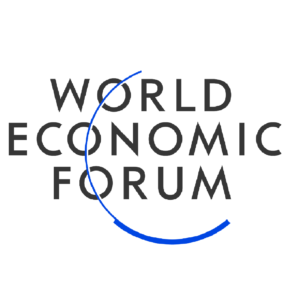- Myanmar has made great progress in recent years, but faces political challenges to ensure stability
- Education and investment are keys to unlocking greater prosperity and deepening the nation’s project of development
- Suu Kyi: In hindsight, the situation in Rakhine State could have been handled better; accepts 100% of responsibility and reaffirms commitment to repatriation of displaced Rohingyas, and restoration of peace
- Suu Kyi defends the transparency of the court proceedings in recent sentencing of journalists
Ha Noi, Viet Nam, 13 September 2018 – Myanmar is committed to achieving peace and prosperity in coming years as it continues to develop, affirmed Aung San Suu Kyi, State Counsellor of Myanmar, at the World Economic Forum on ASEAN.

Adaptability and conviction have been key to the country’s achievements so far, stressed Suu Kyi. “Young people have changed, and also our civil servants,” she said. “I’m not just talking about corruption; it’s also about the fact that they feel more confident, and they feel they can take initiative much more.”
Education is a priority to continue this trend, she stressed. “It is through education that you teach the people to understand how to create peace and prosperity.” Education does not end after school,” she added, “but encompasses all efforts “to give the people an opportunity to learn more about what kind of role they can play.”
“Our young people are very creative and innovative,” Suu Kyi said, “in spite of the fact that we have had a very poor education system.” She invited entrepreneurs to invest in Myanmar’s young people and their business endeavours, for example, efforts to produce ethanol from the cocoa fruit.
Myanmar attracted $8 billion in foreign direct investment last year. Welcoming “more and better investments”, Suu Kyi emphasized that “we also accept that we have a responsibility to … attract more of the kind of investments we want,” especially in the fields of education and agriculture.
About 70% of the population of Myanmar still lives in rural areas; Suu Kyi highlighted Myanmar’s potential to play a leading role in global food security. “Food starts from the earth,” she said, and Myanmar – once known as the rice bowl of the world – is diversifying its agriculture.
Yet, there are thorny political challenges to negotiate in order to continue on the road of development to which her party, the National League for Democracy, is committed, acknowledged Suu Kyi.
On the role of the military, which holds 25% of Parliamentary seats by law, she reaffirmed that to have “25% unelected Parliamentarians is not in line with democratic values, and this has to change. All legislators should be elected freely by the people.”
Such a process would be negotiated and step-by-step, Suu Kyi said, in the interests of national reconciliation, and she reiterated that the National League for Democracy has never supported public demonstrations. “We have tried to do everything within the framework of the law, because we believe that rule of law is absolutely essential for the stability of our country and the security of our people.”
“Politics is politics,” Suu Kyi commented. “People seem to think that politics in opposition are different to politics in office. Unless you work with people, you cannot help a country to achieve sustainable development.”
On the topic of dislocation and violence in Rakhine State, Suu Kyi reaffirmed Myanmar’s commitment to the repatriation of displaced Rohingyas, and a restoration of peace. “Although we only have 75% of the Parliament,” she said, “we have to accept 100% of the responsibility.”
She emphasized that the rule of law must apply to all. “There are of course ways in which we, with hindsight, might think that the situation could have been handled better, but we believe that for the sake of long-term stability and security, we have to be fair to all sides.”
Suu Kyi also commented on the recent sentencing of two Reuters journalists in Myanmar to seven years in jail. She defended the transparency of the court proceedings, and invited observers to read the sentencing summary to point out any miscarriage of justice. “Due process allows them to appeal the sentence.”
“They were not jailed because they were journalists,” she said. “They were jailed because … the court has decided that they have broken the Official Secrets Act.”
Suu Kyi expressed her hope and conviction that her party will win the next elections, in 2020, in order to continue their programme of development in line with the Myanmar Sustainable Development Plan released earlier this year. “We want to be part of the process of bringing the country out of poverty.”
“Peace and prosperity cannot be divided,” Suu Kyi closed. “These two go together.”
The World Economic Forum, committed to improving the state of the world, is the International Organization for Public-Private Cooperation. The Forum engages the foremost political, business and other leaders of society to shape global, regional and industry agendas. (www.weforum.org).
